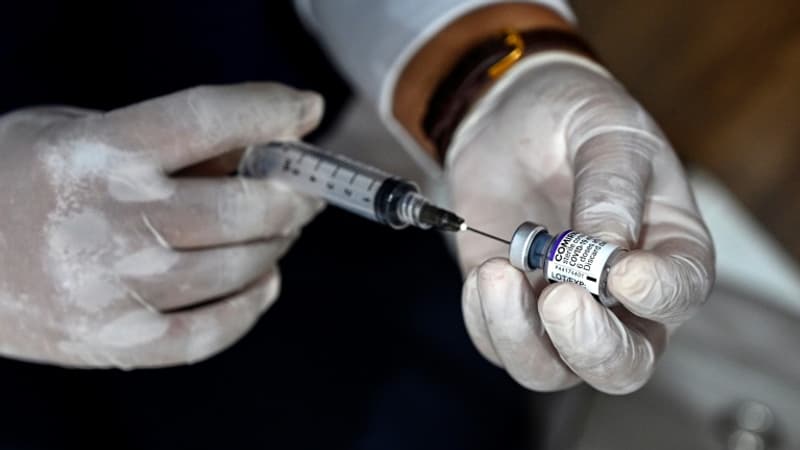Given the resumption of the Covid-19 epidemic, the government has decided to advance, like other European countries, its new vaccination campaign: starting this Monday it will focus on the highest-risk populations, with new vaccines.
“The virus circulates, each of us sees cases around us. The epidemic is there,” declared Health Minister Aurélien Rousseau in mid-September to justify this decision to finally accelerate the system.
Initially, the anti-Covid vaccination, focused on the most vulnerable, was to be carried out at the same time as the flu vaccination, starting on October 17. But the virus has re-entered the back-to-school calendar, after resurfacing in the middle of summer.
In France, the virus surveillance system, considerably simplified, is currently close to that of the flu. In this context, it is difficult to delicately follow its circulation.
However, there is no doubt about the rebound of the epidemic, confirmed by the few indicators still available. Thus, according to the Sentinels network, made up of doctors and pediatricians who communicate health data, last week the incidence of Covid-19 cases that present respiratory signs “continued the marked increase observed since mid-August.”
Given this situation, the Government requested the opinion of the Health Risk Monitoring and Anticipation Committee (Covars), which recommended in mid-September “access to the booster vaccine as soon as possible.”
Vaccination will mainly be aimed at those over 65 years of age, vulnerable people, those suffering from comorbidities, pregnant women, residents of nursing homes or even people in contact with vulnerable people.
Any other person who wants a booster can request it for free, as long as they respect a period of six months after their last injection or Covid infection. This vaccination can be carried out in the city, by a doctor, a pharmacist, but also by a nurse, a midwife or even a dentist.
“Boost immunity”
“We are doing well to move forward with the recall campaign,” said Etienne Simon-Lorière, a virologist and director of the National Virus Center for Respiratory Infections at the Pasteur Institute.
“There is currently a relatively intense circulation of the virus: if many people become infected, we run the risk that, among them, there will be fragile people who end up in the hospital,” continues this specialist.
For this new campaign, messenger RNA (mRNA) vaccines, adapted to the very widespread XXB.1.5 variant (Omicron subvariant), are recommended as the first line, regardless of the vaccine previously administered. They should be more effective against the different variants that are currently circulating the most, in particular EG.5.1.
The European Medicines Agency (EMA) recommended in June that vaccines be updated to target the XBB strain of the virus currently in circulation. Since the beginning of September, the monovalent vaccine Comirnaty omicron XBB.1.5 from Pfizer/BioNTech has been available. The manufacturer has planned more than 10 million doses, he said.
For its part, the Moderna laboratory recently obtained authorization from the EMA for its new vaccine, but assures “that it is ready to supply it to France for the (…) autumn campaign.”
For people who do not want and/or cannot benefit from mRNA vaccines, it is possible to use Sanofi’s VidPrevtyn Beta and Novavax’s Nuvaxovid as a booster. The latter, adapted to XBB.1.5, is expected in November.
“Updated vaccines should make it possible to better attack the variants currently circulating, but other sublineages have already emerged since their conception,” says Etienne Simon-Lorière.
In any case, “anything that allows, on the one hand, to strengthen the immunity of a part of the population and, on the other, to contain viral circulation, reduces the chances of mutations of the virus occurring, which could ultimately create surprises,” continues the virologist.
In addition to vaccination, health authorities continue to recommend barrier gestures, mainly in case of infection. But this message seems less heard, three and a half years after the start of the epidemic.
Source: BFM TV


